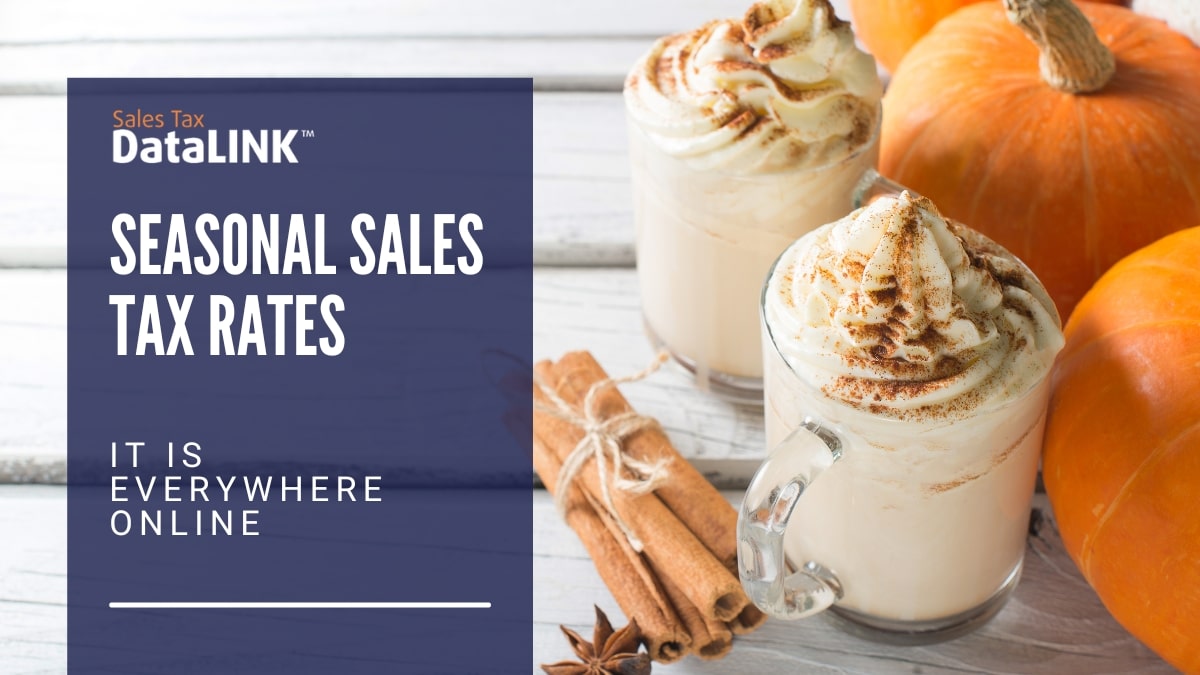Embracing the Seasonal Sales Tax Rates Amidst the Festivities
As you savor the aroma of pumpkin spice in the air (whether it’s in your coffee, baked goods, or even your bathtub), and with Halloween just around the corner, the rapid journey from Thanksgiving to Christmas marks a transition into a new year.
Amidst the delight of these seasonal transformations, it’s important not to forget about the impact of seasonal sales tax rates.
Seasonal sales tax changes might be new to you
You might not have dealt with seasonal changes in the past. Until the Supreme Court’s Wayfair decision allowed states to compel remote sellers to collect and remit sales taxes, you only had to think about seasonal sales tax rates if you happened to have them in your state or the few other states in which you had nexus.
Now it’s everybody’s problem.
Alaska
One example of a state with seasonal tax rates is Alaska. Alaska doesn’t have a statewide sales tax, but municipalities can all charge sales tax, and 107 does. Those that charge sales tax often have two different tax rates. They charge less from October to April, and more from April to October.
Whitter, for example, charges sales tax only from April to September 30th. The winter sales tax rate is zero. Skagway does the same — but only for retail sales. That would exempt other kinds of sales taxes, such as raw fish taxes or hotel bed taxes, from the winter holiday.
Other municipalities charge sales tax all year but at different rates. For example, Galena charges 3% in the winter and 6% in the summer. Some do not have a sales tax on food in the winter but tax it in the summer. This helps people who work seasonally and also allows Alaska to share municipal costs with summer tourists.
South Dakota
South Dakota levies an extra 1.5% sales tax from June through September on businesses that rely on tourists. Hotels and restaurants are subject to tourism tax all year, but the seasonal tax on “visitor-intensive businesses” may be harder to define.
For example, a visitor site that interprets culture or history — say a museum — may also sell products on a retail basis. Those sales are subject to the tourist tax. If you are a manufacturer and you accept special orders from visitors to that museum which you drop-ship to the end consumer, you might be subject to that tax. If you sell directly to the museum, you don’t have to collect tourism sales tax, whether the museum will be using the goods you provide or selling them to end users.
Affected businesses range from bungee jumps to zoos, gold courses to spas.
Solution: Sales Tax DataLINK
It’s hard to keep track of all the sales tax rates in the country, let alone special seasonal rates. Sales Tax DataLINK makes the difference. We offer unparalleled accuracy — and we can take on all your sales tax compliance requirements. Call 479-715-4275 and let us impress you.




